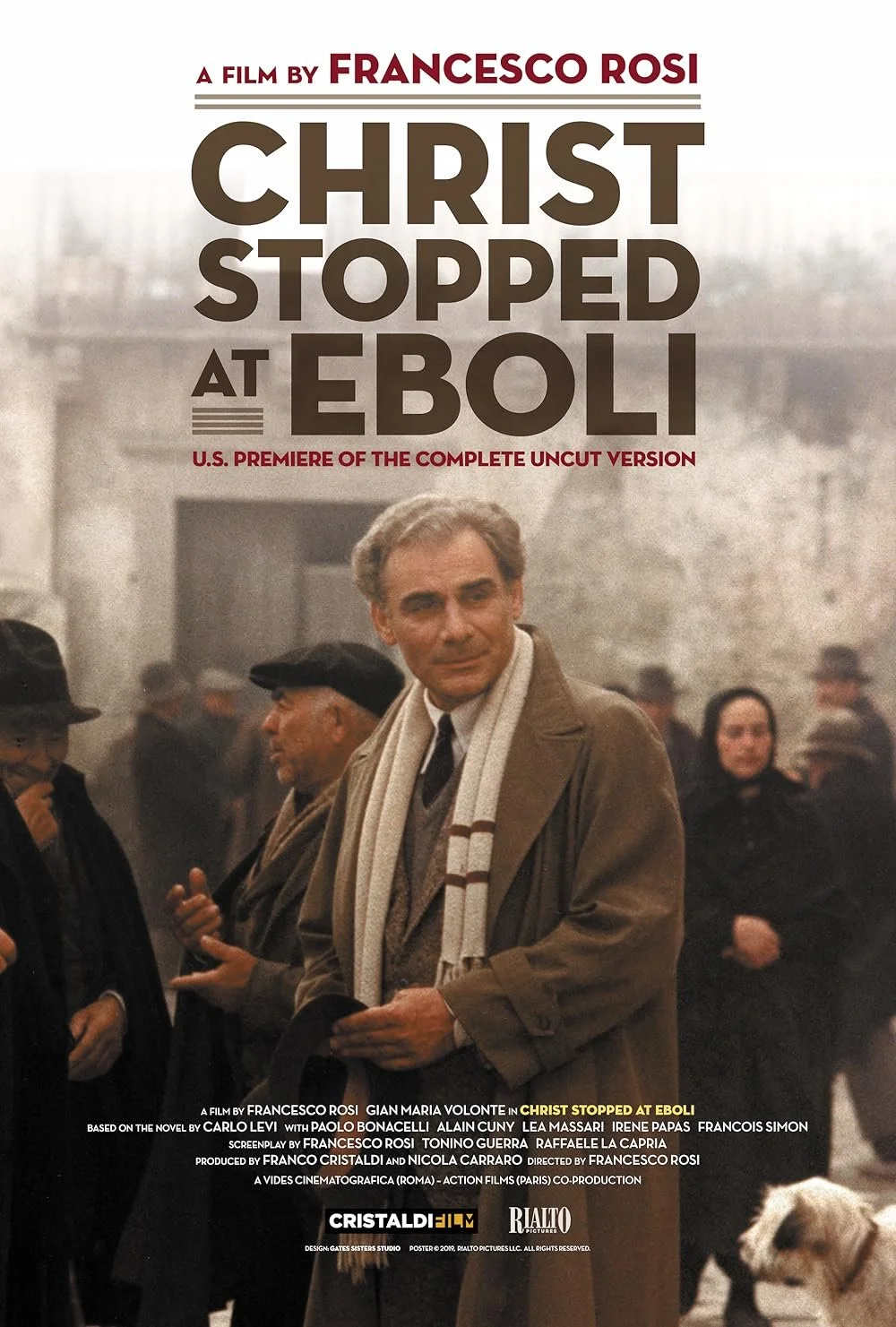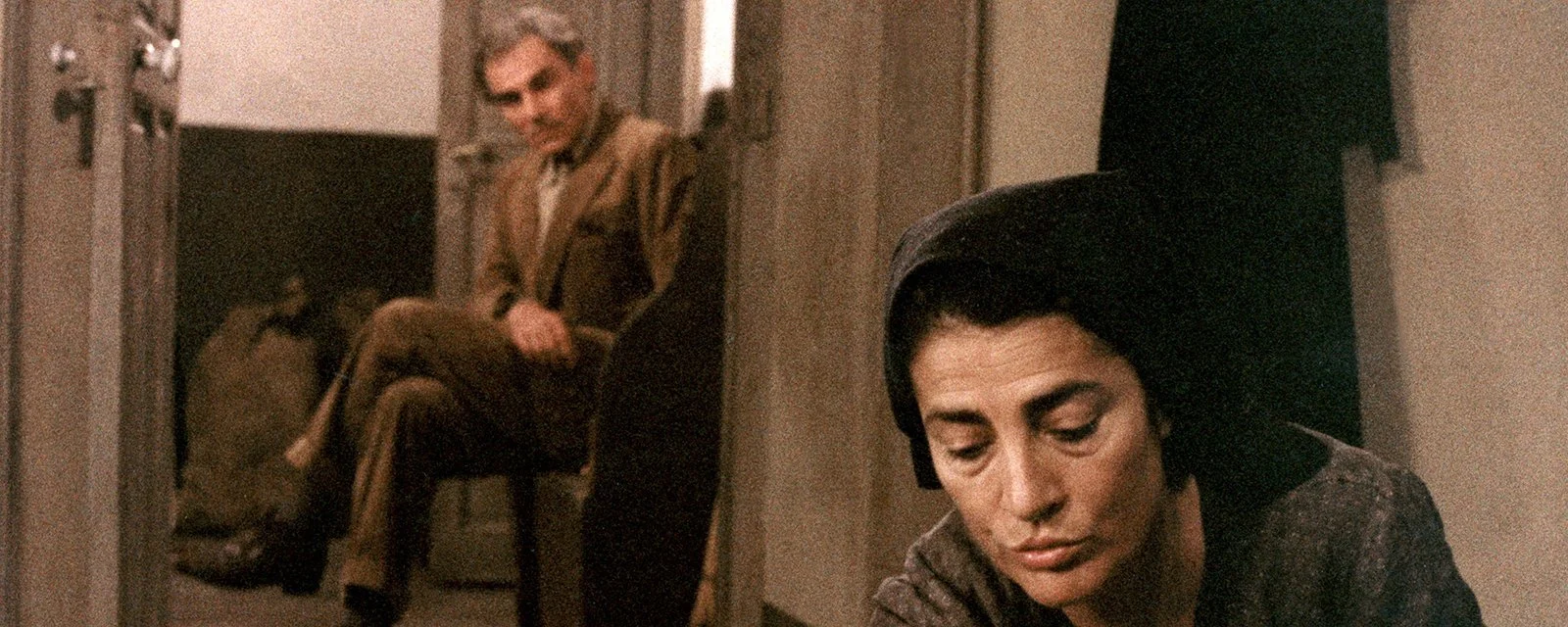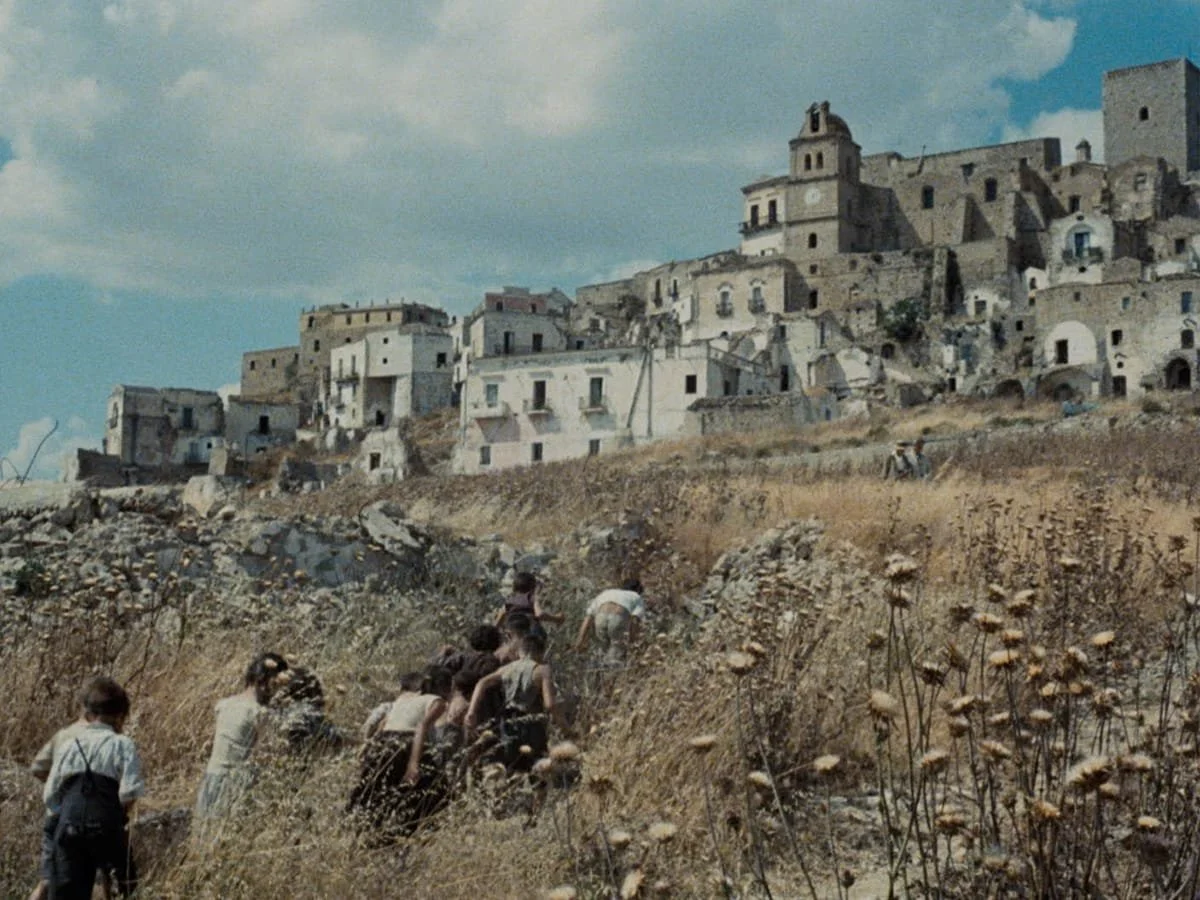SUBTLE & TRUE: Francesco Rosi's CHRIST STOPPED AT EBOLI (co-adapt & directed by Francesco Rosi from a memoir of the same name by Carlo Levi, approx 215mns in 4 television episodes, 1979)
This movie writing may contain spoilers.
European limited TV series have yielded some of the greatest cinematic works of all time. And while American TV in the age of cable and streaming has produced its fair share of THE WIRES, BREAKING BADS, TRUE DETECTIVE SEASON 1's, TWIN PEAKS THE RETURN, and so on, it really is a stunner how much critically important cinematic work has come out of European TV.
Ingmar Bergman's SCENES FROM A MARRIAGE and FANNY & ALEXANDER, Kryztof Kieslowski's THE DECALOGUE, Rainer Werner Fassbinder's BERLIN ALEXANDERPLATZ, Lars Von Trier's THE KINGDOMS I, II, & III, Mike Leigh's NUTS IN MAY among many other TV movies in the 1970's, are just the tip of the iceberg of incredible work.
And so it is with Italian master moviemaker Francesco Rosi's CHRIST STOPPED AT EBOLI, adapted from the memoir by Carlo Levi, about Levi's time as an exiled political prisoner in the rural impoverished remote Southern Italian region of Lucania for his anti-fascist activities during Mussolini's fascist reign in the 1930's.
Told in four episodes of roughly 1 hour each, CHRIST STOPPED AT EBOLI stars Italian superstar Gian Maria Volante, most well known to US audiences for his roles as live wire bad guys in Sergio Leone's A FISTFUL OF DOLLARS and FOR A FEW DOLLARS MORE. So it may come as a surprise (and even a shock) to some US viewers to realize that Volante is an intensely talented actor capable of subtle, quiet, and sophisticated performances like the one he gives here as political dissident, doctor, and painter Carlo Levi.
The other real star of the series is director Francesco Rosi, who made a series of profound, insightful, and painfully astute movies about political topics including SALVATORE GIULIANO, THE MATTEI AFFAIR, HANDS OVER THE CITY, ILLUSTRIOUS CORPSES, among others.
Even the subtle costume design points to the disagreements between the fascist mayor and Don Carlo, the political dissident.
Never one to shout his message or beliefs in dumb declaratives, Rosi nevertheless is clearly anti-fascist, anti-authoritarian, and concerned for any country that believes a remote "state" of elites, technocrats, bullies, of any political stripe is going to have any kind of understanding of the realities of everyday struggling poor folks.
CHRIST STOPPED AT EBOLI is a series of vivid episodes during Levi's time in an extremely superstitious and impoverished southern town. There, Levi, a doctor by training, and a sophisticated city-dweller by birth, comes to develop a love, appreciation, and better understanding of the day to day realities of the working poor around him. At the same time, this cinematic story isn't a simplistic left-wing "oh the noble poor" socialist or communist screed. It's much more mysterious and humane. It really wouldn't matter if a left wing or a right wing moviemaker had made the movie as its observations and insights are essentially human ones.
Each episode has striking moments-Levi's first few nights as a guest in a widow's home when a religious local nobleman and a musical tax collector separately speak of their lives. A sexually alive single mother who nevertheless lives her life according to countless rural superstitions. A group of local men who have immigrated to America and returned singing songs. A drunk priest who finally speaks out against fascism at a midnight Christmas mass and so on.
Sexuality and superstition are undercurrents of the movie as well.
At the same time, Levi is interrogating the disconnect between political movements, which often have their homes in middle to upper class urban centers that might as well be other planets, and impoverished rural folks who are consumed trying to transcend extremely limited economic opportunities to support their families. Levi shows how dictator Mussolini's radio speeches about war, country, fascism move the locals far less than the town's fascist mayor believes. These folks are more concerned with when the local pig castrator is going to come to sterilize their livestock.
The movie takes place in the 1930's but was made in the late 1970's, a time in Italian politics known as "the years of Lead" in which both lurching far-right and far-left politics rocked the stability of Italy. So it's no surprise that Levi ultimately observes that the type of "politics" is less central to tackling the problem than realizing that it's the constant "remote state", whether left or right, that alienates the people.
In this, Rosi and Levi, both of whose politics do seem to be left-leaning, are having a startlingly honest conversation with their audiences. And this is what lifts CHRIST STOPPED AT EBOLI to rarefied heights.
Most political works, however earnest and well intentioned, struggle to transcend the limitations of the idealogies of the moviemakers who make them. If you don't already agree with the moviemaker's political POV, you can see the limitations, assumptions, hypocrisies, dogmas of their world view.
A city, its peoples, and its problems as ancient as civilization itself.
But the best political work, like the best humanist work, is humble in dedication to the truth, no matter how inconvenient.
And in dedicating itself to that search for truth, it refrains from simplistic conclusions.
Often it ends in uncomfortable observations and unanswered questions.
The bookend scenes of an older Levi in his spacious city art studio looking at the paintings he made of the townspeople during his time as a prisoner are seemingly straightforward but self-indicting beneath. Rosi said that the movie ultimately was "a journey through my own conscience". These opening and closing scenes at first blush appear to communicate longing and melancholy for the people Levi came to love.
But with reflection, one wonders if the scenes represent something more damning. Levi's realization (and maybe even Rosi's own and by extension our own) that he did precious little to better those lives once he left though he had deeper understanding. When he could, he returned to the city. What are our politics worth if we don't walk it like we talk it?
Rarely does a political work rise to the level of brilliant humanism as well. Jean Renoir, Akira Kurosawa, John Ford, Roberto Rossellini, Rainer Werner Fassbinder were capable of such works.
Add Francesco Rosi to that list.
Craig Hammill is the founder.programmer of Secret Movie Club




